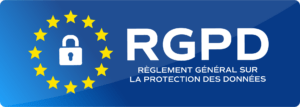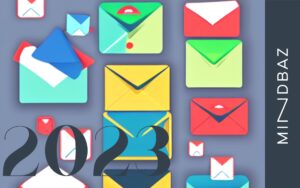If you are concerned about the protection of your customers’ personal data, you have probably implemented an appropriate collection and good process.
But, do the solutions you use that have access to this data track it in detail? In this article, we give you 3 good reasons to choose a French SaaS.
Data protection
A legal framework for businesses in Europe
The new challenges of data protection
If you’re concerned about protecting your customers’ personal data, you’ve probably set up a process for collecting and processing it securely.
But are the solutions you use that have access to the data carefully monitored?
Email router, CRM, SMS solution, data analysis tool…
These SaaS solutions all have access to your data to a greater or lesser extent. Whether it’s your data or that of your customers or partners, it’s your job to know how they use it.
However, depending on where the solution comes from, the way it’s handled can be completely different.
French legislation offers higher levels of protection than in many countries, especially the United States.
The GDPR and the development of data protection in Europe
In 1978, the French Data Protection Act (Loi Informatique et Libertés) created very strict personal data protection for the country’s citizens. It requires French companies to get explicit consent from users before collecting personal data and imposes very strict restrictions on companies’ use of personal data.
Forty years later, it’s the GDPR that strengthens European legislation this time. The General Data Protection Regulation sets further additional security constraints, which apply throughout Europe.
They offer additional protection for customers’ personal data:
- right to be forgotten and to have data deleted
- right to data transfer
- obligation to obtain explicit consent before collecting data
- obligation to identify data security risks
- obligation to implement technical and organizational measures to protect data
- inform individuals of security incidents
- regular updating of protection measures
- obligation to reduce data storage periods…
USA: a fragile and self-serving protection
On the other side of the Atlantic, unicorns abound. With a more liberal policy emphasizing entrepreneurship, American companies benefit from support for their development.
American culture is more conducive to entrepreneurial risk-taking than French culture. Whatever the reasons, American solutions make up the majority of tools and SaaS used in Europe.
Google, Facebook, Amazon, Microsoft, Mailchimp, Canva…
You probably use several of these American solutions. But are you aware of how your data (and your customers’ and partners’ data) is used by these tools?
The Cloud Act and personal data transfer
The Clarifying Lawful Overseas Use of Data Act is the long version of the Cloud Act. This American law enables US authorities to access data stored on online data storage services located abroad.
Introduced in 2018, it applies to data stored on services in the United States as well as abroad (i.e. Europe).
The Cloud Act requires companies to provide access to data when requested by government agents, even if that data is stored abroad.
In other words, US authorities can access the data of tech companies and online services, including user data. The official aim of the Cloud Act is to tackle crime and terrorism. This is why authorities who have access to this data are:
- Regulatory bodies including:
- Federal Trade Commission (FTC),
- Securities and Exchange Commission (SEC),
- Commodity Futures Trading Commission (CFTC),
- Bureau of Consumer Financial Protection (BCFP),
- Bureau of Alcohol, Tobacco, Firearms and Explosives (ATF),
- Bureau of Industry and Security (BIS),
- Department of Homeland Security (DHS),
- Department of Justice (DOJ)
- Department of the Treasury (Treasury)
- Law enforcement agencies
- Any person authorized by law
The Patriot Act, or how the United States gave wide access to personal data
In 2001, the USA adopted the USA Patriot Act. This law gives US authorities extensive powers to fight terrorism and crime.
Since 2001, government agents have been able to access personal and commercial information, including data stored on online services, without a warrant or legal authorization.
Le Patriot Act, une législation d’exception au bilan très mitigé http://t.co/LHdTpfNwHF
— Le Monde (@lemondefr) January 13, 2015
The government can therefore monitor and collect data on individuals and companies located abroad without a legal warrant.
While the content of the law is often criticized (especially abroad), its application does not satisfy its opponents. The Patriot Act is seen by some as a violation of freedom of expression and individual liberties.
In a European Parliament report on US Surveillance Programs and their impact on the fundamental rights of EU citizens, the impacts of the Patriot Acts on the rights of Europeans are singled out:
“On June 5, 2013, the Washington Post and the Guardian published a secret executive order adopted under section 215 of the Patriot Act, requiring phone carrier Verizon to regularly transmit to the NSA details of all telephone communications inside and outside the United States. […] At the end of the day, James Clapper (director of the NSA) officially acknowledged the existence of the PRISM program and the fact that it relies on powers conferred by section 702 of the FAA (section 1881a of FISA).”
Environmental impact, the advantage of French SaaS
Choose your battles depending on your values

Depending on your company’s values, your objectives will not be the same. If your company wants to improve its environmental impact, working with a French SaaS can help you at least be aware of the software publisher’s carbon footprint.
French companies are more constrained than their American competitors. It’s also a stronger demand from our audiences. Companies are therefore naturally in the process of making choices to limit their carbon footprint.
At Mindbaz, for example, our datacenter is in Lille rather than Paris, because the difference in temperature limits the energy used to cool down our servers.
Environmental regulations for Tech companies in France
French SaaS can have a lower carbon footprint, as they are more strongly encouraged by the state to use renewable, low-carbon energy sources.
Recycling requirements are stricter in France for IT waste, in order to comply with environmental regulations:
- Computer waste must be sorted according to type and condition.
- It must then be processed by an approved treatment center that complies with current regulations.
- Recycled products must also comply with French environmental requirements, especially in terms of noise and emissions.
- French companies must report their IT waste output.
- They must also report how they have processed this waste in a database called Eco-Système Informatique (ESI).
Overall, French SaaS may offer better environmental performance, but this will depend on specific factors such as data center location, energy efficiency and recycling practices.
Contributing to the economy
SaaS and innovation in France
By choosing a French SaaS solution, you’re contributing to the economy and encouraging innovation and employment in France.
Whether you’re talking about jobs within the company or with its partners and customers (freelancers, permanent contracts, work-study contracts…), using French solutions will have many positive impacts.
Working with a French SaaS solution encourages research and development. This virtuous circle contributes to improving business efficiency and productivity.
Contributing to French and European digital independence
As we mentioned at the beginning of this article, American solutions are ever-present in our companies.
By deciding to move away from Canva or Mailchimp and try out French solutions, you give them the chance to improve and convince you of French know-how.
This is no easy task when you consider that adopting new tools is a challenge for every company. To help you, we’ve come up with some alternatives to the American solutions you may be using:
10 examples of French SaaS to replace your American tools
1. Online graphic design tool
American : Canva
French alternative: Easil
2. Task management software
American: : Trello
French alternative: Beesbusy
3. Podcast hosting
American : Buzzsprout
French alternative: Ausha
4. Task management software
American : Google drive
French alternative Oodrive
5. Message router (email and SMS)
American : Mailchimp
French alternative: Mindbaz
6. Search engine
American: Google
French alternative: Qwant
7. Social network
Chinese: Tiktok
French alternative: BeReal
8. Instant messaging app
American: Whatsapp
French alternative: Telegram
9. Spell checker
American: LanguageTool
French alternative: BonPatron.com
10. Artificial Intelligence Chatbot
American: ChatGPT
French alternative: Goat Chat
Discover our article on emailing statistics in 2024:



